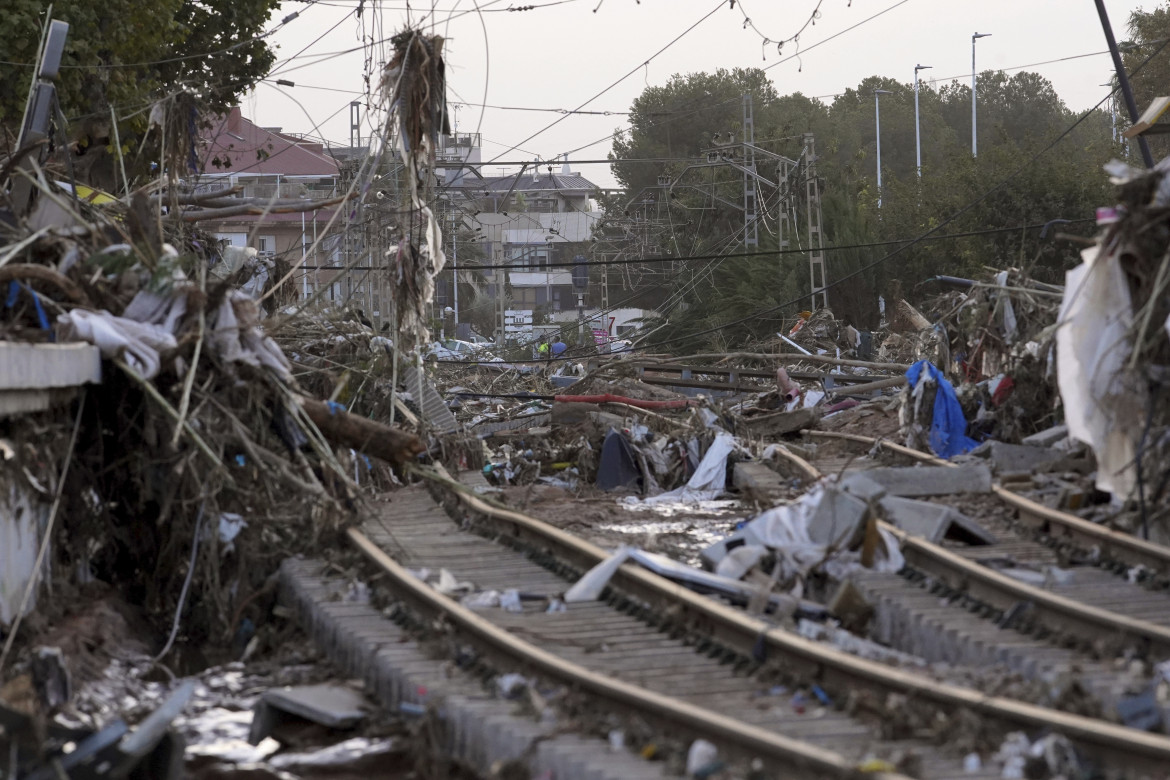Analysis
Governments defund and postpone climate strategies, shifting the burden to us to adapt
Between now and 2050 the impact of global climate change is estimated to cost us six times more than we would have had to spend to prevent it. Instead of preventing it, the Italian government plans to turn the problem of climate adaptation over to the insurance market.

Because of the name “global warming,” some had been under the illusion that climate change would come in the form of scorching summers and milder winters than we were used to. Instead, with every passing week, we are finding out more and more that the enormous amount of heat being retained by the atmosphere due to greenhouse gasses has immediate consequences in the form of climate extremes.
The Valencia region is now beset by catastrophic floods, but until just a few weeks ago it was battling the worst drought in 80 years. The same can be said for Italy’s Emilia-Romagna and France's Ardeche, which have been flooded once again, like many other regions around the Mediterranean and around the world. The wealthy West is discovering, through firsthand experience, some of the reasons why millions of people are leaving their precarious lands to move elsewhere.
What we are seeing on TV, or right in front of our eyes, are the effects of a temperature increase of just a few tenths of a degree. According to the international agreement reached in Paris in 2015, the world was supposed to strive to limit temperature rise to within 1.5 degrees higher than the pre-industrial era. Instead, the latest annual report from the United Nations Environment Program shows that with the current state of emissions, the world is heading toward a 3.1-degree increase, twice the target value. To stay within the 1.5-degree goal, we would need to cut emissions by 42 percent in five years, which is virtually impossible.
Nevertheless, it’s clear that it would be the cheaper option: according to a recent study in the journal Nature, between now and 2050 the impact of global climate change is estimated to cost us six times more than we would have had to spend to prevent it. And yet, even the timid “green” policies put forward in recent years are faltering under the blows of nationalism and populism.
The Meloni government's budget law is a clear example. The government has almost wiped out the fund intended to finance the conversion of the Italian automotive industry (i.e., Stellantis) to producing electric cars: of the €5.8 billion left in the fund, the budget law cuts €4.6 billion. Instead, the money will be shifted over to Defense, where the government has guaranteed €40 billion in investments over the next ten years. As is obvious, the Meloni government does not prioritize collaborating in the international effort to bring the climate under control, but instead favors bolstering Italy’s place in the global military rankings.
This is a trend both in Italy and elsewhere. In Europe, along with the Italian government, the German government is also asking Ursula von der Leyen to postpone the ban on diesel and gasoline cars set for 2035. Since Italy and Germany are the two main manufacturing centers on the continent, they will win out.
And things aren’t looking any better at the global level. In less than two weeks, Azerbaijan, a petrostate, will host COP29, the annual summit where governments and supranational bodies decide on how to address the climate crisis and where the EU usually advocates for the more pro-environment positions. Spanish Socialist Teresa Ribera Rodriguez, designated vice-president of the next Commission with responsibility for the ecological transition, would be the best politician to push the summit in the right direction, but she hasn’t yet taken office. As a result, the EU will show up in Baku with only the incumbent climate justice commissioner (reappointed for the next five-year term), Wopke Hoekstra, who has worked for the Shell oil company in the past. Von der Leyen has entrusted him, not Ribera, with changing the regulations on fossil fuels for cars and trucks in Europe. From the U.S., Joe Biden will be attending. He could be an ally to Europe, but his party’s loss on Nov. 5 leaves him with virtually no clout.
Even if politics were to come to its senses and adopt an environmentally virtuous path, the effects of lower emissions would only be seen in a few decades. What about the meantime? As the farmers in Emilia know, there is scarce compensation from the state for the damages suffered. Instead, the Italian government plans to turn the problem of climate adaptation over to the insurance market.
Starting this year, it has become mandatory for farms to take out a policy to protect themselves against climate risk. The December 31 deadline is almost here, but only 5 percent of businesses have done so, partly because insurance premiums are becoming prohibitive and entire parts of Europe are already being deemed “uninsurable.”
Italy (like other countries) is facing the climate crisis in the worst possible conditions: the energy market is dominated by military logic, international forums appear powerless, and the return of austerity is hitting the brakes on the public investments needed to adapt to the new situation. A “perfect storm,” one might say, if that wasn’t a metaphor in poor taste already.
Originally published at https://ilmanifesto.it/interessi-e-scelte-mancate-non-danno-scampo on 2024-10-31
